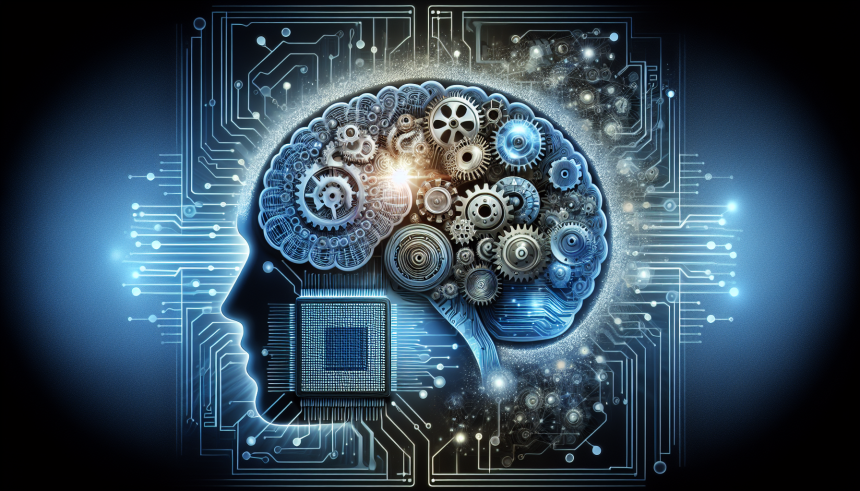Understanding Knowledge in AI: A Detailed Exploration
Defining Knowledge in AI
Knowledge in artificial intelligence (AI) refers to the information, skills, and understanding that machines acquire and utilize to perform tasks, make decisions, and solve problems. This understanding encompasses both explicit knowledge, which can be easily articulated and represented in structured formats, and tacit knowledge, reflecting the intuitiveness that comes from personal experiences and insights. The process of defining knowledge is crucial in AI contexts, as it directly influences the effectiveness of algorithms and the overall functionality of AI systems.
Types of Knowledge in AI
-
Explicit Knowledge: This is information that can be documented and communicated easily. In AI, explicit knowledge takes the form of data sets, databases, and structured information that algorithms can process. For instance, structured data relevant to customer preferences helps machine learning models predict consumer behavior.
-
Tacit Knowledge: Unlike explicit knowledge, tacit knowledge is intuitive and often unspoken. It includes insights gained through experience. In AI, this type of knowledge can be challenging to codify but is essential in developing systems that can mimic human-like understanding.
-
Procedural Knowledge: This refers to the knowledge of how to perform certain tasks. In AI, this could involve algorithms that learn to play games or complete physical tasks through reinforced learning, where they improve their performance based on rewards and penalties.
-
Declarative Knowledge: This encompasses facts and information that can be easily articulated, such as “Paris is the capital of France.” In AI, declarative knowledge can be stored in knowledge bases, allowing systems to respond to queries effectively.
The Role of Knowledge Representation
Knowledge representation is the design of a framework that enables AI systems to simulate human understanding of the world. This representation plays a fundamental role in how AI systems interpret information. Several methods for knowledge representation include:
-
Semantic Networks: These graph structures represent knowledge in patterns of interconnected nodes, signifying concepts and their relationships. For instance, the concept of “dog” might be linked to “animal” and “pet,” providing a relational understanding.
-
Logic-Based Representation: Logic forms, such as propositional logic or predicate logic, are used to draw conclusions from premises. This approach enables machines to make inferences and derive new knowledge.
-
Frames: Frames are data structures that hold knowledge in a modular form. Each frame represents a concept or object and includes various attributes and values related to that concept.
-
Ontologies: Ontologies provide an explicit specification of a conceptualization, often used to facilitate communication between systems by providing a shared vocabulary. They are pivotal in domains like the Semantic Web, where machines must understand complex relationships.
Significance of Defining Knowledge in AI
-
Enhancing Machine Learning: Properly defined knowledge allows AI systems to learn effectively. Accurate representations lead to better model training, improved accuracy, and the ability to generalize from previous experiences.
-
Improving Decision-Making: AI applications range from medical diagnostics to stock trading, where definitional clarity translates to informed decisions. By understanding the nuances of knowledge representation, AI anticipates potential outcomes and reduces errors.
-
Boosting Interoperability: In a landscape with multiple AI systems, a standardized approach to knowledge representation enables seamless communication. This interoperability is essential for multi-agent systems that rely on collaboration between different AI entities.
-
Facilitating Natural Language Processing: Natural Language Processing (NLP) relies heavily on well-defined knowledge structures to understand and generate human language. By defining how entities and verbs relate, AI can better comprehend and produce human-like dialogue.
-
Enriching User Experiences: In applications like chatbots and virtual assistants, the ability to leverage defined knowledge affects user interaction quality. Personalized responses hinge on the system’s understanding of user preferences, intents, and context.
-
Ensuring Ethical AI Development: Defining knowledge supports a more transparent understanding of AI decision-making processes. By explicitly outlining how knowledge is used, developers can address biases and ensure fairness in AI systems.
Challenges in Defining Knowledge
-
Complexity of Human Knowledge: The intricacies of human understanding can be challenging to translate into algorithms. Tacit knowledge, in particular, is difficult to articulate, leading to gaps in AI capabilities.
-
Dynamic Nature of Knowledge: As societies evolve, so does knowledge. Keeping AI systems updated with new information and changing contexts is crucial but often overlooked.
-
Scalability Issues: As knowledge bases grow, maintaining their integrity and efficiency becomes difficult. Ensuring that AI systems can handle large amounts of information without slowing down or misinterpreting data is a paramount concern.
-
Interdisciplinary Knowledge Integration: AI spans various domains, from linguistics to ecology. Integrating specialized knowledge from diverse fields into a cohesive system presents significant challenges regarding consistency and coherence.
The Future of Knowledge Definition in AI
As AI continues to evolve, the approach to defining and representing knowledge will also advance. Innovations in neuroscience and cognitive science can inform AI systems on better mimicking human-like reasoning. Additionally, emerging technologies such as quantum computing may revolutionize computational approaches to knowledge representation, allowing for more complex and nuanced systems.
Finally, societal engagement in discussions around AI’s ethical implications will shape how knowledge is conceptualized and utilized in the future. Engaging various stakeholders can ensure that AI systems remain aligned with societal values and ethical considerations.
Understanding the multi-faceted nature of knowledge in AI is critical for building intelligent systems that not only function effectively but also enrich human experiences and insights. As we continue to explore the depths of machine learning and AI capabilities, the definition of knowledge will remain a cornerstone of innovation and ethical practice within this rapidly evolving technological landscape.


